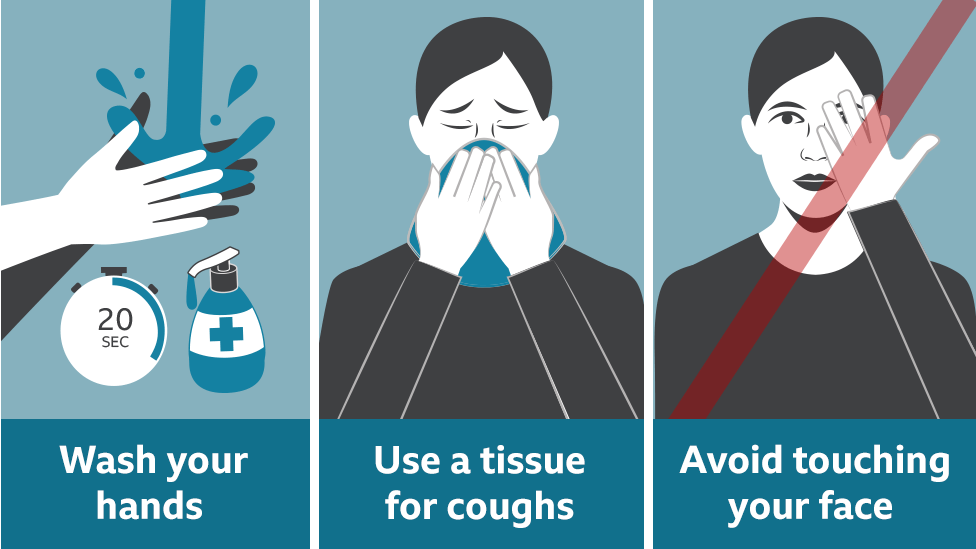
Coronavirus has spread to more than 145 countries or territories, and claimed more than 6,400 lives.
So, what is the disease and how does it spread?
The best thing is regular and thorough hand washing, preferably with soap and water.
Coronavirus spreads when an infected person coughs small droplets – packed with the virus – into the air. These can be breathed in, or cause an infection if you touch a surface they have landed on then your eyes, nose or mouth.
So, coughing and sneezing into tissues, not touching your face with unwashed hands, and avoiding close contact with infected people are important for limiting the spread.
Face masks do not provide effective protection, according to medical experts.
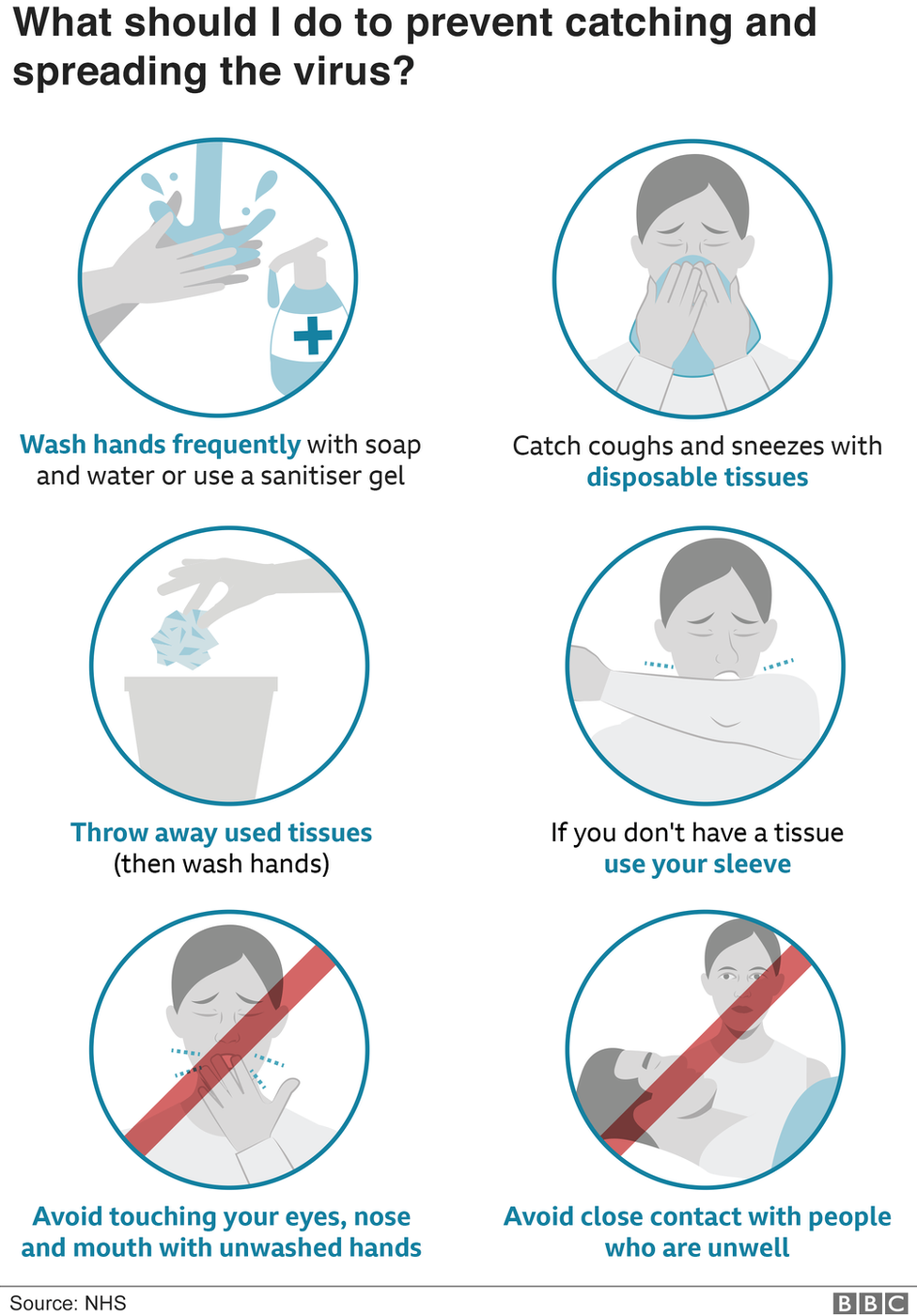
What are the coronavirus symptoms?
Coronavirus infects the lungs. The symptoms start with a fever followed by a dry cough, which can lead to breathing problems.
It takes five days on average to start showing the symptoms, scientists have said, but some people will get symptoms much later than this.
The incubation period lasts up to 14 days, the World Health Organization (WHO) says. But some researchers say it may be up to 24 days.
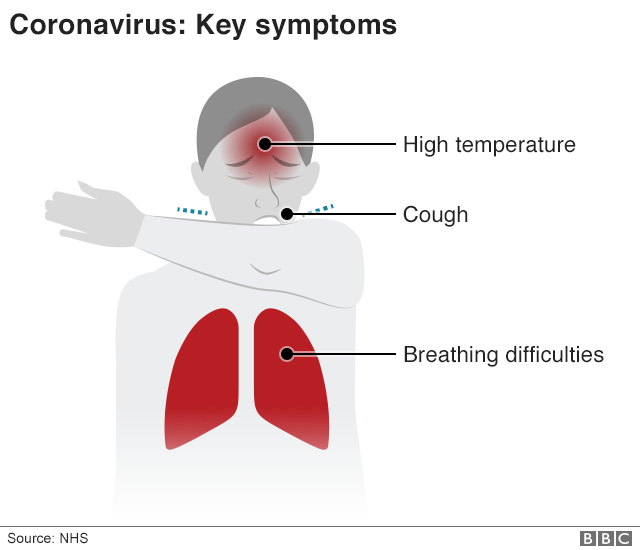
People will be most infectious when they have symptoms, but there have been suggestions some can spread the virus even before they are sick.
The early symptoms can easily be confused with other winter bugs including colds and flu.
How deadly is coronavirus?
The proportion dying from the disease appears low (between 1% and 2%) – but the figures are unreliable.
Thousands are being treated but may go on to die – so the death rate could be higher. But it may also be lower if lots of mild cases are unreported.
A World Health Organization examination of data from 56,000 patients suggests:
- 6% become critically ill – lung failure, septic shock, organ failure and risk of death
- 14% develop severe symptoms – difficulty breathing and shortness of breath
- 80% develop mild symptoms – fever and cough and some may have pneumonia
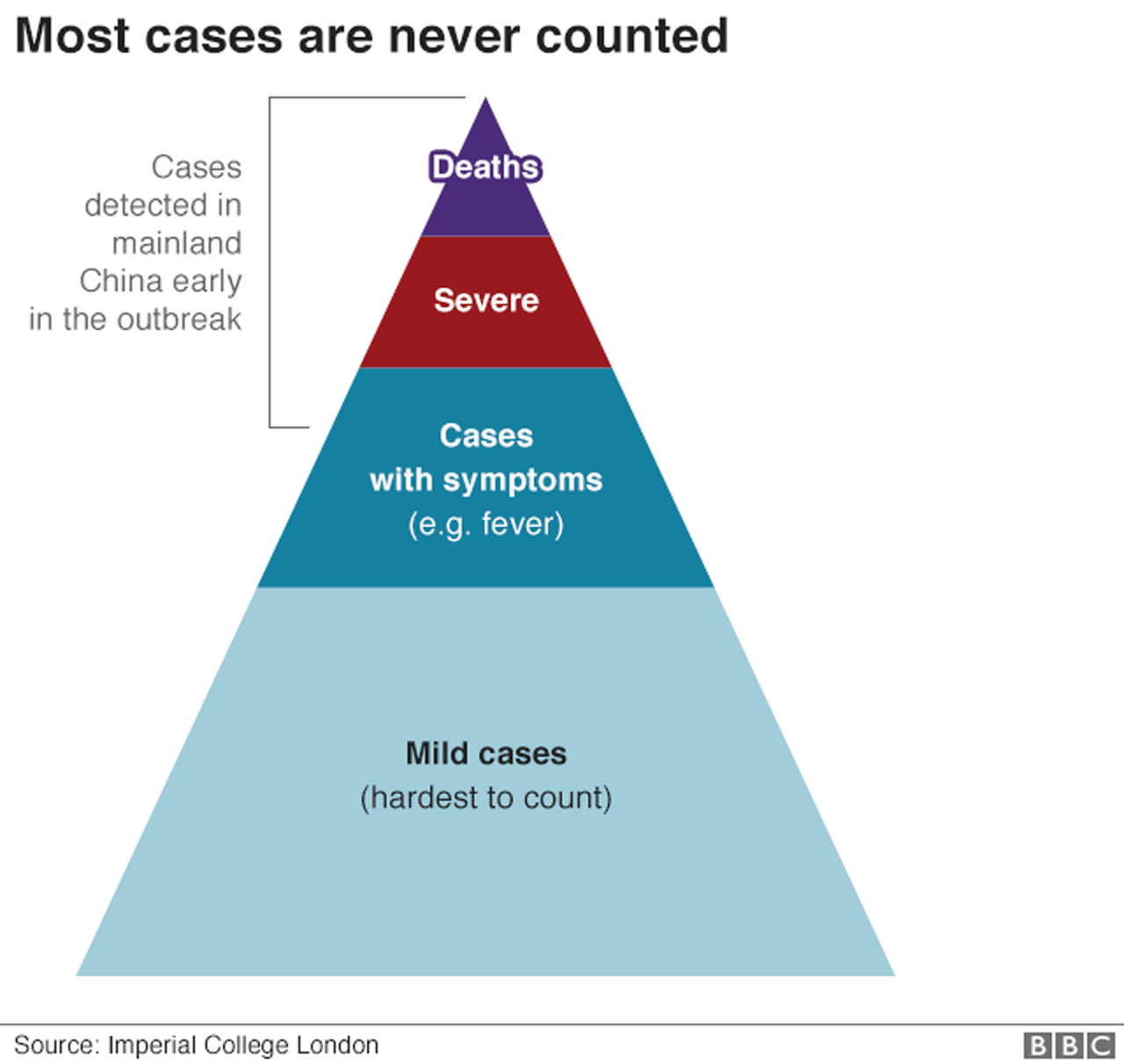
Older people, and those with pre-existing medical conditions (such as asthma, diabetes, heart disease, high blood pressure), are more likely to become severely ill. The data from China also suggests that men are at slightly higher risk of dying from the virus than women.
Treatment relies on keeping the patient’s body going, including breathing support, until their immune system can fight off the virus. Work to develop a vaccine is under way.
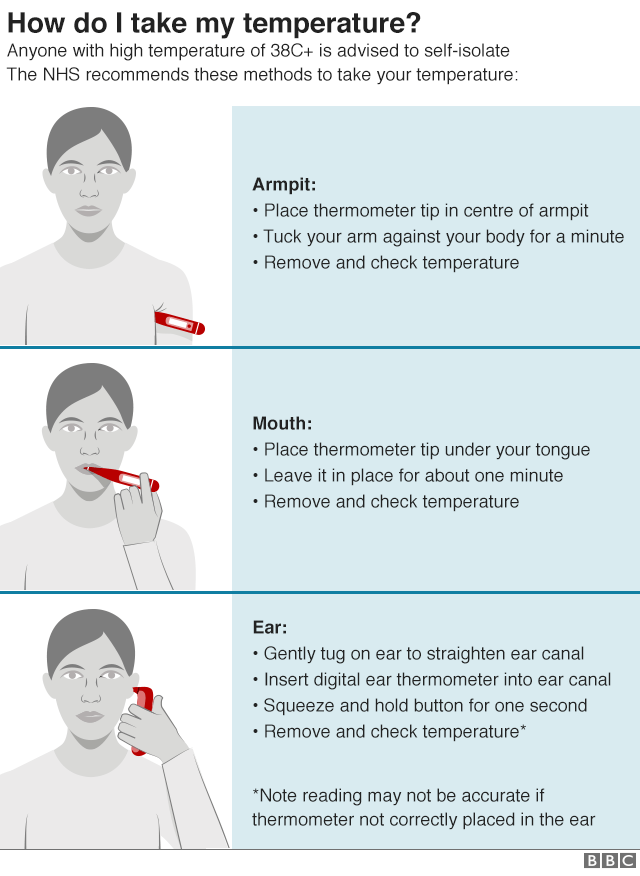
How fast is it spreading?
Hundreds of new cases are being reported worldwide each day. However, it is thought health agencies may be unaware of many cases.
After starting in China, coronavirus is now spreading fast in many other countries.
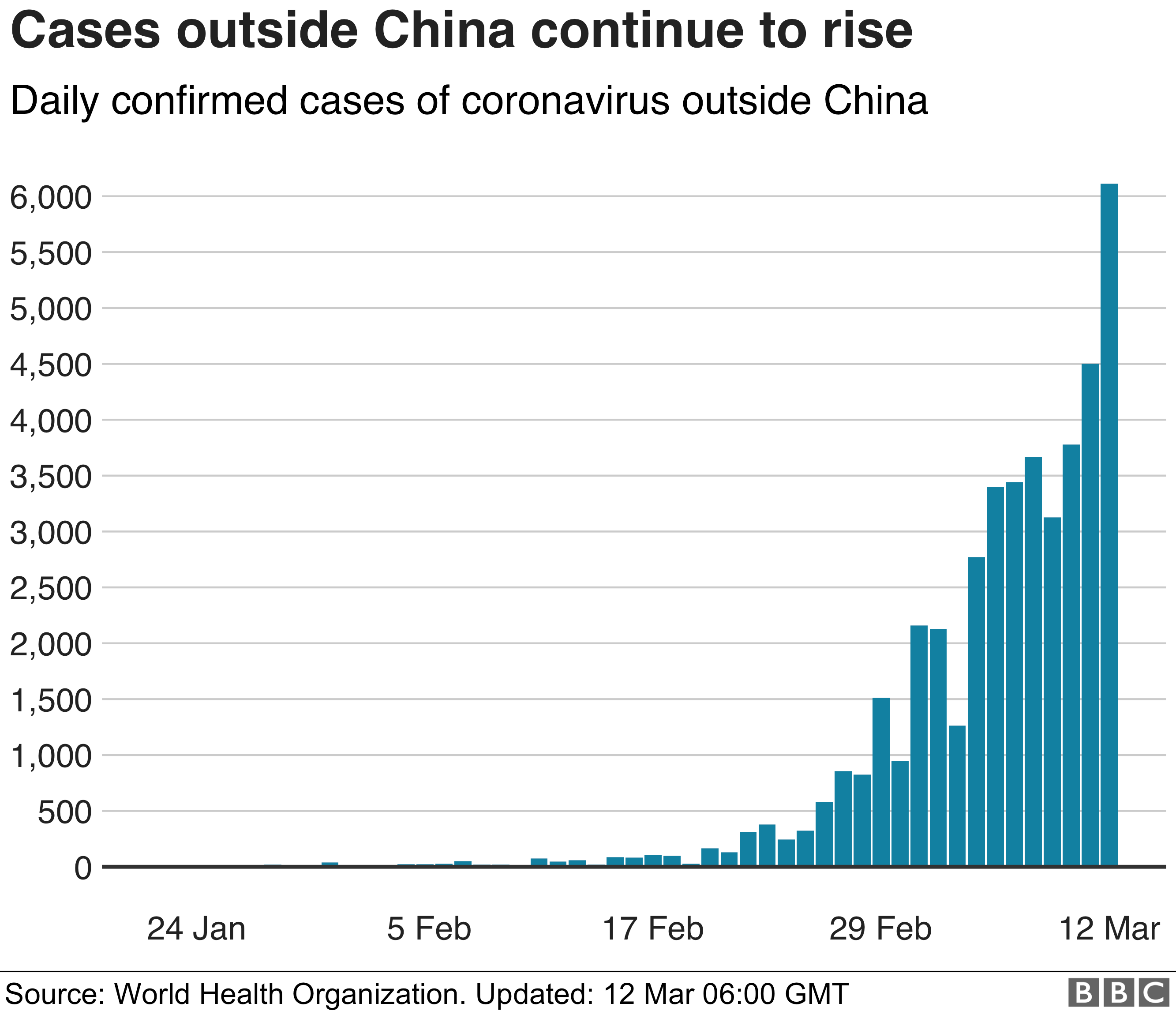
Comment (0)